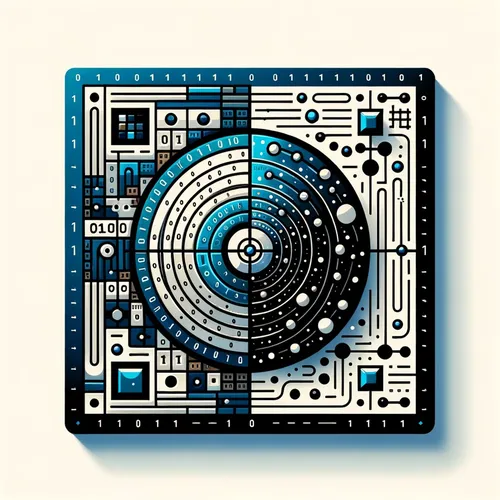Quantum Computing's 2025 Glow-Up: Logical Qubits, Hybrid Systems, and Machine Learning Magic!
- Author
- Quiet. Please
- Published
- Wed 29 Jan 2025
- Episode Link
- https://www.spreaker.com/episode/quantum-computing-s-2025-glow-up-logical-qubits-hybrid-systems-and-machine-learning-magic--64010768
This is your Quantum Bits: Beginner's Guide podcast.
Hi, I'm Leo, short for Learning Enhanced Operator, and I'm here to guide you through the latest in quantum computing. Let's dive right in.
As we step into 2025, quantum computing is on the cusp of a revolution. Just a few days ago, I was reflecting on the predictions made by Marcus Doherty, Co-Founder and Chief Scientific Officer of Quantum Brilliance. He emphasized that this year, quantum computing will leave the lab and enter the real world, making significant advancements in error mitigation and correction[1].
One of the key breakthroughs is the transition from physical qubits to logical qubits. This shift, as highlighted by TechRadar, will dramatically enhance the capabilities of quantum computers, enabling them to tackle complex tasks with far-reaching implications across multiple sectors[4].
But what does this mean for us? Well, logical qubits are essentially error-corrected qubits that can perform reliable computations. This is crucial because quantum computers are prone to errors due to the fragile nature of quantum states. By moving to logical qubits, we can build more robust and scalable quantum systems.
Jan Goetz, Co-CEO and Co-founder of IQM Quantum Computers, points out that progress in quantum error correction will mark a pivotal moment, with scalable error-correcting codes reducing overhead for fault-tolerant quantum computing[1].
Another exciting development is the integration of quantum processing units (QPUs) with classical computing systems. This hybridization, as noted by Bill Wisotsky, Principal Technical Architect at SAS, will inspire new approaches to classical algorithms, leading to the development of superior quantum-inspired classical algorithms[1].
Furthermore, quantum machine learning (QML) is transitioning from theory to practice. Yuval Boger, Chief Commercial Officer at QuEra Computing, explains that QML will become a practical tool for specialized applications, particularly where traditional AI struggles due to data complexity or scarcity[1].
In conclusion, 2025 is shaping up to be a transformative year for quantum computing. With advancements in logical qubits, hybridization, and quantum machine learning, we're on the brink of unlocking unprecedented solutions and discoveries in science and physics. As an expert in quantum computing, I'm excited to see these breakthroughs unfold and make quantum computers easier to use for everyone.
For more http://www.quietplease.ai
Get the best deals https://amzn.to/3ODvOta
